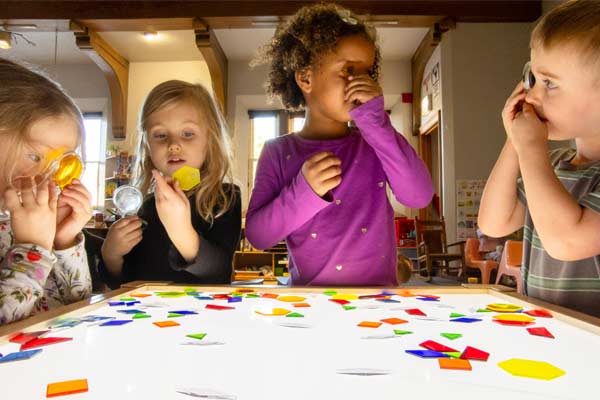Early childhood education is a cornerstone of a child’s development, laying the foundation for lifelong learning, emotional well-being, and social skills. This critical phase shapes how children view the world and equips them with the tools they need to thrive in an ever-evolving society. Aspiring educators play a pivotal role in this journey, and specialized programs such as a Diploma in Early Childhood Care and Education (ECCE), ECCEd courses, and Montessori teacher training online are essential for equipping educators with the necessary skills.
The Importance of Early Childhood Education
Early childhood education is about more than just teaching children basic skills. It fosters holistic development by nurturing cognitive, emotional, social, and physical growth. Research shows that high-quality early education improves academic performance, boosts self-esteem, and reduces the likelihood of social challenges later in life.
Effective early education requires trained professionals who understand child psychology and can create engaging, age-appropriate learning environments. Courses such as a Child Psychology course or an ECCEd course online provide educators with in-depth knowledge about child behavior and developmental milestones.
Key Elements of Early Childhood Education
1. Play-Based Learning
Play is an integral part of a child’s development. It promotes creativity, problem-solving, and social interaction. Educators trained in Montessori teacher training online understand how to integrate play into structured learning, allowing children to explore their environment and learn through hands-on experiences.
2. Emotional Development
Building emotional intelligence is as important as academic learning. Early education programs help children recognize, understand, and manage their emotions. Teachers who have completed a Child Psychology course are adept at creating a nurturing environment that fosters emotional resilience.
3. Social Skills and Collaboration
Group activities encourage children to share, cooperate, and communicate effectively. Programs like the Diploma in Early Childhood Care and Education emphasize the importance of fostering interpersonal skills in a classroom setting.
4. Cognitive and Language Development
The early years are crucial for brain development. Structured learning activities in ECCEd courses focus on language acquisition, critical thinking, and problem-solving skills, ensuring children are well-prepared for formal schooling.
Benefits of Specialized Training for Educators
To provide effective early childhood education, educators need a robust understanding of child development principles, teaching methodologies, and classroom management strategies. Here’s how specialized training programs make a difference:
Diploma in Early Childhood Care and Education (ECCE)
This comprehensive program equips educators with practical knowledge and skills to handle young learners. The curriculum often covers child psychology, lesson planning, activity design, and classroom management, enabling educators to create a supportive and stimulating learning environment.
ECCEd Course Online
For those seeking flexibility, an ECCEd course online offers the same high-quality training in a convenient format. These programs are ideal for working professionals or individuals balancing multiple responsibilities.
Montessori Teacher Training Online
This specialized training focuses on the Montessori method, a child-centered approach to education. It emphasizes independence, hands-on learning, and fostering curiosity in young learners. Online courses make it accessible to aspiring educators worldwide.
Child Psychology Course
Understanding child psychology is critical for tailoring teaching methods to individual needs. This course delves into behavioral patterns, emotional triggers, and developmental stages, equipping educators with the tools to support every child effectively.
Career Opportunities in Early Childhood Education
The demand for qualified early childhood educators continues to grow, creating a variety of career opportunities for those with the right credentials:
- Preschool Teacher: Shape young minds in their earliest learning stages.
- Montessori Educator: Implement the Montessori method in specialized settings.
- Childcare Center Director: Oversee operations and ensure high-quality care.
- Child Psychologist: Provide emotional and developmental support to children.
- Curriculum Developer: Design engaging and effective learning materials.
Completing a Diploma in Early Childhood Care and Education or an ECCEd course can open doors to these rewarding careers.
How to Choose the Right Training Program
When selecting a training program, consider the following factors:
- Accreditation: Ensure the program is recognized by reputable educational bodies.
- Curriculum: Look for courses that cover essential topics such as child psychology, teaching methods, and classroom management.
- Flexibility: If you need a program that fits your schedule, consider options like ECCEd course online or Montessori teacher training online.
- Practical Experience: Hands-on practice is crucial for applying theoretical knowledge in real-world settings.
Shaping the Future Through Early Education
The role of early childhood educators is both impactful and fulfilling. By pursuing specialized training through programs such as a Diploma in Early Childhood Care and Education, educators can make a meaningful difference in the lives of young learners. These programs not only enhance teaching skills but also foster a deeper understanding of the emotional and cognitive needs of children.
Investing in early education is an investment in the future. Aspiring educators who choose to enhance their skills through programs like Montessori teacher training online or a Child Psychology course are taking a significant step toward nurturing young minds and shaping tomorrow’s leaders.













